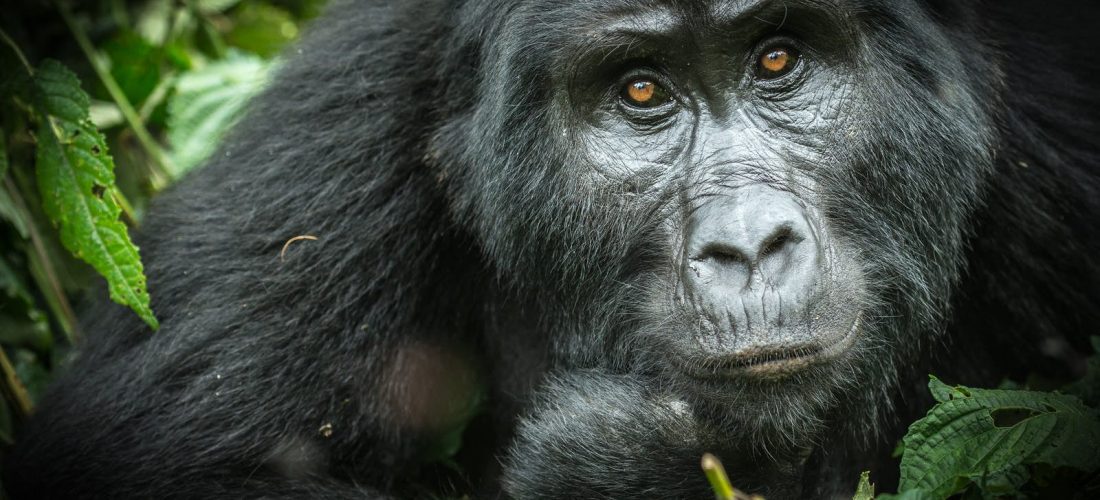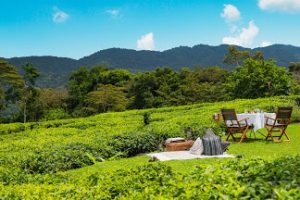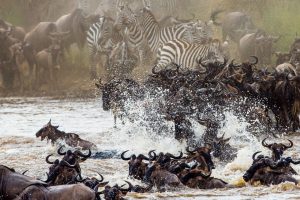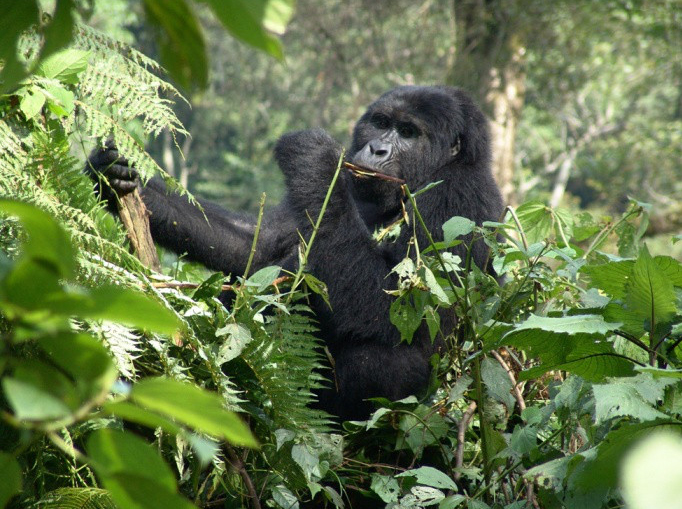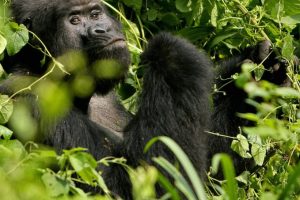Visit Rwanda and go gorilla trekking in one of the most revered rain forest jungles on planet earth. Volcanoes National Park is Rwanda’s tourism jewel that makes home to the gentle giants of the mountain slopes, the magnificent mountain gorillas. Thousands visit Rwanda every year to spend that once-in-a-lifetime hour with the great apes.
This is arguably the best place to track and see gorillas in the whole of Africa. It has some of the best forest lodges on the continent, you can see hundreds of bird species, track the endangered golden monkey, hike the tenuous volcano summit, take a nature walk and experience raw indigenous African cultures in the boundaries of the forest. Unlike the other three gorilla destinations, Volcanoes is easy to access and proudly pricey for the luxury treat.
Gorilla trekking is the main reason why people are attracted to Volcanoes National Park, Rwanda. Gorilla treks begin early in the morning at the park headquarters. With a trained guide, you’ll make your way through the forest following signs of the animals’ whereabouts.
Outside of the Rwanda gorilla tours, you’ll want to see the golden monkeys as well. These funny looking creatures live closer to the base of the volcanoes and make their homes in the bamboo. They are quite shy by nature, but the habituated groups are long since used to people being around them.
A golden monkey trek will be a bit shorter than a gorilla trek because you won’t have as far to hike. They will likely be a lot more challenging to photograph than the gorillas since they move a lot more quickly, so make sure you have your camera ready to go at all times.
Just like the Rwanda gorilla safaris, the golden monkey treks require a permit. In this case, they’re a lot more affordable at just $100 per person. Make sure to book your permit at least three months in advance to make sure you get a spot.
Visitors can climb a number of volcanoes, including Karisimbi and Visoke and can visit nearby lakes. Many of the lodges also put on traditional dance performances in the evening, whilst others work closely with the community and offer visits to local primary schools, orphanages and sustainable projects across the settlements.


